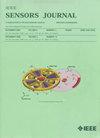FCDG:一种基于中心教条的跨域故障诊断方法
IF 4.3
2区 综合性期刊
Q1 ENGINEERING, ELECTRICAL & ELECTRONIC
引用次数: 0
摘要
尽管基于深度学习的检测技术显著提高了故障诊断的效率和准确性,但由于运行工况变化导致的样本分布差异,限制了其发展。针对这一挑战,提出了一种具有广域泛化能力的特征密码子智能轴承故障诊断方法——特征密码子域泛化(FCDG)。引入特征密码子和特征反密码子的概念,提出了一种基于特征密码子非概率建模的故障诊断方法。即分别从源域和目标域提取特征反密码子和特征密码子,将特征反密码子和特征密码子匹配并翻译到相应的故障类别中。该范式有效地整合了源域特征密码子的分布来推断目标域样本的类隶属关系,并通过引入特征密码子与特征反密码子的匹配,扩展了域泛化(DG)故障诊断的理论框架。特征密码子匹配的分类方法取代了传统的分类方法,避免了因域移位而导致的分类边界失效的影响。大量的实验结果证明了所提出的FCDG在各种可变工况下的有效性。本文章由计算机程序翻译,如有差异,请以英文原文为准。
FCDG: A Central Dogma-Inspired Approach for Cross-Domain Fault Diagnosis
Although deep learning-based detection technology has significantly improved the efficiency and accuracy of fault diagnosis, its development is limited by the differences in sample distribution caused by operating condition changes. To address the challenge, a feature codon intelligent bearing fault diagnosis method feature codon domain generalization (FCDG) with wide-area generalization capability is proposed. FCDG introduces the concepts of feature codons and feature anticodons and proposes a new fault diagnosis method based on the nonprobabilistic modeling of feature codons. That is, feature anticodons and feature codons are extracted from the source domain and target domain, respectively, and the feature anticodons and feature codons are matched and translated into the corresponding fault category. The paradigm effectively integrates the distribution of feature codons in the source domain to infer the class affiliation of samples in the target domain and expands the theoretical framework of domain generalization (DG) fault diagnosis by introducing the matching of feature codons and feature anticodons. The classification method of feature codon matching replaces the traditional classification, avoiding the influence of classification boundary failure caused by domain shift. A large number of experimental results demonstrate the effectiveness of the proposed FCDG under various variable operating conditions.
求助全文
通过发布文献求助,成功后即可免费获取论文全文。
去求助
来源期刊

IEEE Sensors Journal
工程技术-工程:电子与电气
CiteScore
7.70
自引率
14.00%
发文量
2058
审稿时长
5.2 months
期刊介绍:
The fields of interest of the IEEE Sensors Journal are the theory, design , fabrication, manufacturing and applications of devices for sensing and transducing physical, chemical and biological phenomena, with emphasis on the electronics and physics aspect of sensors and integrated sensors-actuators. IEEE Sensors Journal deals with the following:
-Sensor Phenomenology, Modelling, and Evaluation
-Sensor Materials, Processing, and Fabrication
-Chemical and Gas Sensors
-Microfluidics and Biosensors
-Optical Sensors
-Physical Sensors: Temperature, Mechanical, Magnetic, and others
-Acoustic and Ultrasonic Sensors
-Sensor Packaging
-Sensor Networks
-Sensor Applications
-Sensor Systems: Signals, Processing, and Interfaces
-Actuators and Sensor Power Systems
-Sensor Signal Processing for high precision and stability (amplification, filtering, linearization, modulation/demodulation) and under harsh conditions (EMC, radiation, humidity, temperature); energy consumption/harvesting
-Sensor Data Processing (soft computing with sensor data, e.g., pattern recognition, machine learning, evolutionary computation; sensor data fusion, processing of wave e.g., electromagnetic and acoustic; and non-wave, e.g., chemical, gravity, particle, thermal, radiative and non-radiative sensor data, detection, estimation and classification based on sensor data)
-Sensors in Industrial Practice
 求助内容:
求助内容: 应助结果提醒方式:
应助结果提醒方式:


